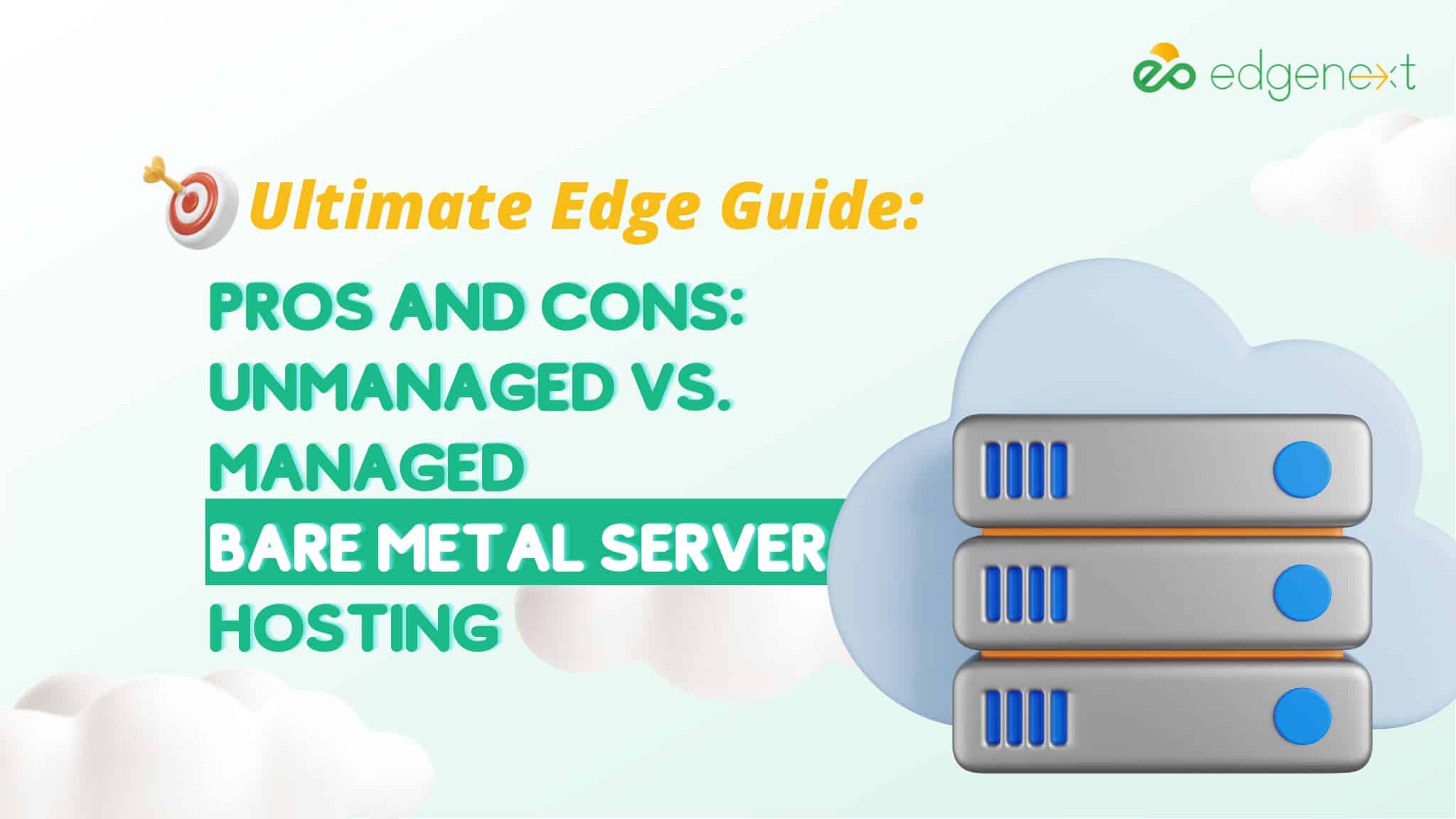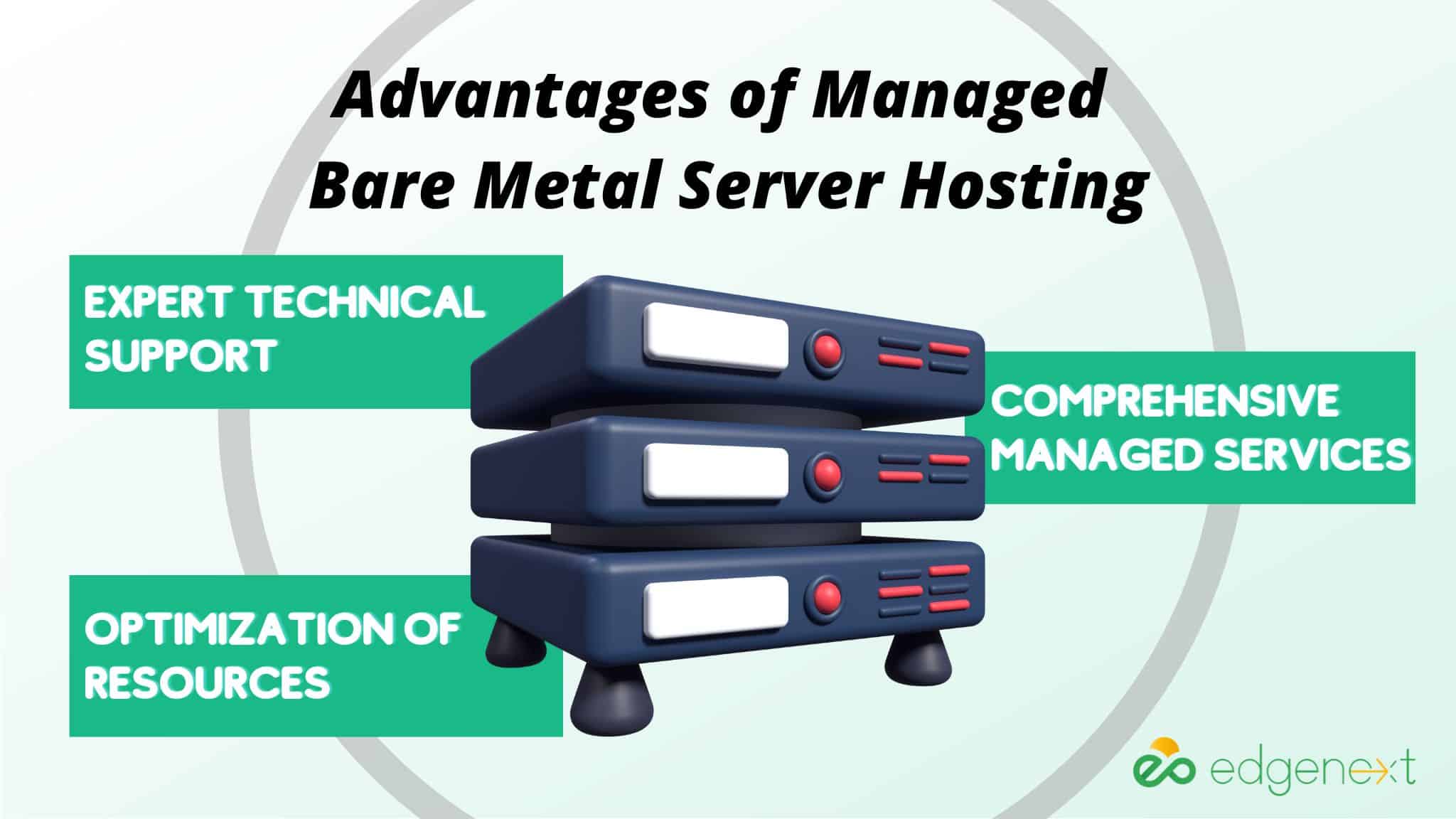
Bare metal servers are the traditional method of hosting and continue to be used in many areas. While some organizations still prefer to manage their own hardware, many prefer managed server solutions as they offer a wide range of benefits. In this blog post, we will compare the pros and cons between unmanaged and managed bare metal server hosting solutions to help you decide which one is right for your organization’s needs.
What is Unmanaged Bare Metal Server Hosting?
Unmanaged bare metal server hosting is a type of web hosting in which the user has full control over their hardware but does not receive any support or maintenance services from the provider. This means that the user is responsible for all aspects of hardware maintenance, software installation, and server configurations.
What is Managed Bare Metal Server Hosting?
On the other hand, managed bare metal server hosting involves a provider taking full responsibility for your hardware and providing technical support and maintenance services. This means that you can focus on developing your website or application without having to worry about managing or troubleshooting hardware, infrastructure, networking and operating system issues.
Overview of Pros and Cons of Unmanaged vs. Managed Bare Metal Server Hosting
Both unmanaged and managed bare metal server hosting solutions have their advantages and disadvantages, so it is important to consider all factors before deciding which one is right for your organization’s needs. Let’s look at the pros and cons of each below.

1. Cost savings
2. Greater control
3. Flexibility
The primary advantage of unmanaged bare metal server hosting is cost savings. Since you are responsible for managing your own hardware and its configuration, you don’t need to pay for any additional services or technical support. This can make it a very cost-effective option, especially for small businesses and individuals who are looking to save money.
Another advantage of unmanaged hosting is the user has greater control over their environment. With this type of hosting, you have full access to your server configuration and settings, which allows you to customize it exactly how you want it. This can be especially beneficial if you require a highly customized environment or want to experiment with different configurations and settings.
Lastly, unmanaged hosting offers greater flexibility than managed solutions. You are free to install any software or applications that you need, as well as make configuration changes to your hardware at any time. This is particularly beneficial for businesses or individuals who require the ability to modify or update their hosting environment quickly.
1. Lack of support and maintenance services
2. Difficulty in implementing complex tasks
The primary disadvantage of unmanaged bare metal server hosting is that it requires a company to employ someone who has the technical knowledge and expertise to manage the systems. Since you are responsible for maintaining and configuring your own hardware, it can be time-consuming and complex. Without access to an experienced IT team. This can be a daunting task
In addition, since you are responsible for all aspects of your hardware, any issues that arise must be resolved by yourself or a third party. This means that without the proper level of technical expertise in-house, hardware issues can lead to costly downtime and delays.

1. Expert technical support
2. Optimization of resources
3. Comprehensive managed services
The primary advantage of managed bare metal server hosting is that it takes the burden of maintenance, configuration and support off your shoulders. As the provider takes full responsibility for managing your hardware, you don’t need to worry about installing basic software, configuring or modifying server settings, or troubleshooting hardware issues. This can save you both time and money, as you don’t need to hire an IT team to manage your server. The IT team is part of your managed service.
In addition, managed hosting allows for greater scalability than unmanaged solutions. You can quickly and easily scale up or down depending on your needs, which is especially beneficial for businesses that require the ability to expand or contract their hosting environment rapidly or on-demand. Lastly, since maintenance and technical support are handled by the provider, any issues that arise can be quickly resolved without waiting for the availability of a third-party service.
1. Higher cost compared to unmanaged hosting
2. Less control over server settings and configurations
The primary disadvantage of managed bare metal server hosting is the cost. Since the
provider manages the hardware, they usually charge more than unmanaged solutions. In addition, since you are limited to using their services, they may limit what software or applications that can be installed and how they will allow the server to be configured. This can be an issue if you require a highly customized environment or want to experiment with non-standard configurations and settings.
Overall, both unmanaged and managed bare metal server hosting have their advantages and disadvantages. It is essential to carefully weigh all factors before deciding which solution is right for you. Consider your budget, technical expertise, scalability requirements, and customization needs when choosing. With this information in mind, you should be able to select the best option for your organization.
© 2025 EdgeNext Copyright All Right Reserved